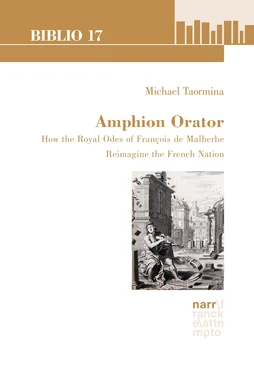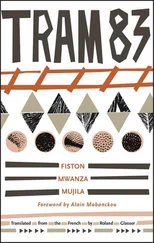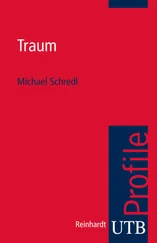Michael Taormina - Amphion Orator
Здесь есть возможность читать онлайн «Michael Taormina - Amphion Orator» — ознакомительный отрывок электронной книги совершенно бесплатно, а после прочтения отрывка купить полную версию. В некоторых случаях можно слушать аудио, скачать через торрент в формате fb2 и присутствует краткое содержание. Жанр: unrecognised, на английском языке. Описание произведения, (предисловие) а так же отзывы посетителей доступны на портале библиотеки ЛибКат.
- Название:Amphion Orator
- Автор:
- Жанр:
- Год:неизвестен
- ISBN:нет данных
- Рейтинг книги:4 / 5. Голосов: 1
-
Избранное:Добавить в избранное
- Отзывы:
-
Ваша оценка:
- 80
- 1
- 2
- 3
- 4
- 5
Amphion Orator: краткое содержание, описание и аннотация
Предлагаем к чтению аннотацию, описание, краткое содержание или предисловие (зависит от того, что написал сам автор книги «Amphion Orator»). Если вы не нашли необходимую информацию о книге — напишите в комментариях, мы постараемся отыскать её.
Amphion Orator — читать онлайн ознакомительный отрывок
Ниже представлен текст книги, разбитый по страницам. Система сохранения места последней прочитанной страницы, позволяет с удобством читать онлайн бесплатно книгу «Amphion Orator», без необходимости каждый раз заново искать на чём Вы остановились. Поставьте закладку, и сможете в любой момент перейти на страницу, на которой закончили чтение.
Интервал:
Закладка:
Henri had acceded to the throne a weak king, mistrusted by political enemies on both sides of the sectarian divide. In his new role, therefore, he took a variety of steps to strengthen his personal authority. Some of these were aggressive policies that fostered state-building and administrative centralization.11 Others involved a drive to remake his public imageimagepublic image: he made a point to be seen praying in every church in Paris; he undertook extensive public building projects; he welcomed the Jesuits back to France; he encouraged royal panegyric. He also took the crucial step of renegotiating his conjugal alliance. Henri had his marriage to Marguerite de Valois annulled, and he wed the ultra-Catholic and fabulously rich Marie de Médicis. Receptions of the new queen in Avignon and in Paris were carefully choreographed events whose idealized images portrayed the sovereign couple as Olympian gods. Similar imagery, though with a different meaning, occurs in Malherbe’s odes.12
After the untimely death of Henri, with Marie de Médicis serving as regent, the particulars of Malherbe’s project changed in a significant way, but the immediate purpose of the odes, as well as their lofty ambition, remained fundamentally unaltered, as the poet now worked to bolster her authority amid noble discontent and rebellion. If Malherbe’s panegyrics lapsed into silence after 1613, it was almost certainly due to the delicate task of navigating the dangerous waters of courtcourt (royal) patronage during a time of growing political instability. The insurrection of Condé in 1614, and the young Louis XIII’s coup d’état in 1617, followed by the exile of Marie de Médicis to Blois, could not have been encouraging signs for the poet, who had published strong support for the queen mother. The difficulty that Malherbe had in getting the royal treasury to pay his stipend could not have helped. Then, after more than a decade, following a tentative rapprochement signaled by a few sonnets, an aging Malherbe composed an ode for Louis XIII, who in 1627 was still consolidating the bases of royal power when he launched the final siege against the last ProtestantProtestant stronghold at La RochelleLa Rochelle. That ode would be Malherbe’s last.
The loftier ambitions of Malherbe’s poetic sequence, namely renovating the monarchypolitymonarchy and uniting the national communitynationnational community, become visible only when the odes are set against the crisis of nationnational identity precipitated by the Wars of ReligionWars of Religion. This sectarian civil war in the second half of the sixteenth century nearly unraveled the tapestry of the French nationnation. In Renaissance and Reformation France , Mack P. HoltHolt, Mack P. observes that the rapid growth of Calvinism in the 1550s and 60s forced the national communitynationnational community of subjects to question the nature of their ties to the king. The traditional sacred oath sworn by the monarch to protect the kingdom from heresy created a destructive double-bind during the Reformation. If the king honored his oath, he was bound to persecute ProtestantProtestants who nevertheless considered themselves to be “good Frenchmen,” that is, loyal to the king and, therefore, still belonging to the national communitynationnational community. For most HuguenotsHuguenots, religious differences were a question of conscience, not of disloyalty. But if the crown appeared to accept peaceful coexistence with them, “then it was very easy for the HuguenotsHuguenots to remain loyal to a king who recognized their legal rights and protected them, while French Catholics’ links to the crown were thus jeopardized by the monarch’s own straying from his constitutional and sacred duty to defend the Catholic religion of his subjects” (HoltHolt, Mack P., Renaissance 26). The Holy LeagueLeague in the 1590s, formed by Catholics wishing to enforce the Catholicity of France, both the crown and the nationnation, grew out of deeply held religious conviction and a genuine “spiritual panic” that unchecked heresy and the evils of civil war presaged God’s disfavor and imminent judgment (Crouzet 75). Hard-line French Catholics, led by the Guises, were genuinely prepared to scrap the Salic Law and accept a Spanish monarch.
The importance of this historical backdrop for Malherbe’s royal odes has not gone unnoticed. Jean-Pierre Chauveau, in Poètes et poésie au XVIIè siècle , acknowledges their participation in the wider artistic and literary effort to restore the unity of the French nationnation in the early decades of the seventeenth century, while in Figurations of France: Literary Nation-Building in Times of Crisis (1550-1650) , Marcus KellerKeller, Marcus analyzes their construction of French nationnationhood and offers an insightful, though somewhat anachronistic critique, focusing on the composition of a nationnational “nous” [we] and the key figures that define it. But neither critic examines in a comprehensive way the odes’ rhetorical constitution of the nationnation. The ideological make-over which the royal odes propose for the monarch and the monarchypolitymonarchy, in addition to repairing the vertical relationship between subject and sovereign, also requires that they redefine the complex network of horizontal relationships, among subjects, that constitute the basis of any national communitynationnational community. This unity, while remaining focused on the monarch as protector and embodiment of the nationnation, proceeds from a complex mode of address ( ēthos ), KellerKeller, Marcus’s national “nous” [we], but the analysis of this ethosproofēthos must push beyond the level of figuration to include the constitutive roles played by argument ( logos prooflogos) and emotionemotion ( pathos proofpathos). Representation is important to the extent that the odes consistently offer a choice between alternatives: the chaos and destruction of civil war versus the political utopia of Bourbon rule. But that means persuasion is even more crucial. The royal odes propose to unite the diverse subjects of France by moving them both cognitively and emotionally to make the right choice.
The importance to the royal odes of the stoicstoicism revival of the late sixteenth and early seventeenth centuries has also been noted. One might think that Malherbe’s sustained engagement with stoicstoicism philosophy, or the image of Henri IV as HerculesHercules, would confirm Denis Crouzet’s sweeping historical argument that the propaganda campaign of royalist Politiques , infused with the tenets of Christian stoicstoicismism, enabled an ethnically French absolutismabsolutism to triumph over LeagueLeaguer demands for European Catholicity.13 But the royal odes do not make a good fit. Besides the fact that they fall back on stoicstoicismism only when disaster strikes, their stoicstoicismism is far from orthodox. Their imagery and argument certainly echo royalist pamphlets of the 1580s and 90s and, in a limited sense, arise from them. Like those Politiques who condemned religiously motivated violence as the surest way to undermine the state, Malherbe clearly places the general welfarecommonwealthgeneral welfare of the nationnation above confessional loyalties.14 However, contrary to stoicstoicism fatality, the heroism of the royal odes underscores the monarch’s power to shape the outcome of events, while their patriotismpatriotism, contrary to the stoicstoicism condemnation of the passions, seeks to move the French subject with an array of powerful feelings, including anger and hatred. Even in their darkest moments, the royal odes still offer a moral choice, using both rational and irrational means of persuasion to produce the consensual allegiance to king and commonwealthcommonwealth that is at the core of the new national communitynationnational community.
Читать дальшеИнтервал:
Закладка:
Похожие книги на «Amphion Orator»
Представляем Вашему вниманию похожие книги на «Amphion Orator» списком для выбора. Мы отобрали схожую по названию и смыслу литературу в надежде предоставить читателям больше вариантов отыскать новые, интересные, ещё непрочитанные произведения.
Обсуждение, отзывы о книге «Amphion Orator» и просто собственные мнения читателей. Оставьте ваши комментарии, напишите, что Вы думаете о произведении, его смысле или главных героях. Укажите что конкретно понравилось, а что нет, и почему Вы так считаете.












